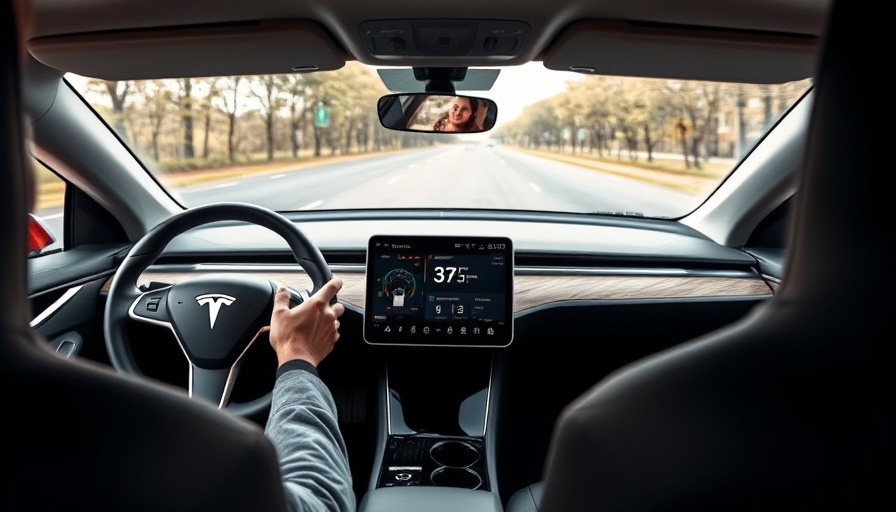
The Implications of Tesla's Rejected Settlement in the Autopilot Case
Tesla's recent $243 million verdict in an Autopilot-related case has brought to light significant concerns about the future of insurance claims related to autonomous vehicles and auto safety. After rejecting a proposed $60 million settlement, which seemed preferable for all parties involved, Tesla is now facing the repercussions of a ruling that not only holds it financially accountable but raises questions about the liability of technology in life-threatening accidents.
How This Verdict Affects Insurance Claim Disputes
This case, which centered around a tragic incident where a Tesla Model S equipped with Autopilot was involved in a fatal crash, sheds light on the growing complexities surrounding insurance claims in the era of autonomous vehicles. In South Carolina, where claims disputes are not uncommon, this verdict sends a clear signal about the growing expectations for automobile manufacturers regarding safety measures and liability coverage. It illustrates that as technology progresses, standard guidelines for how insurance companies handle claims must also evolve.
The Mounting Pressure on Auto Insurers
As more claims related to autonomous driving technologies arise, traditional auto insurers may find themselves grappling with new challenges. Elevated litigation risks stemming from cases like Tesla's complicate claims processing and may lead insurers to consider increased premiums or exclusive policies for vehicles equipped with self-driving capabilities. In a state where residents are increasingly relying on vehicles for daily transportation, understanding these potential changes becomes crucial for consumers.
The Road Ahead: Trends in Claim Settlements and Litigation
Looking ahead, one crucial consideration is how the insurance industry will adapt in response to verdicts like that of Tesla's case. Given that punitive damages constituted a significant portion of the award, it's expected that insurers might tighten their policies or adjust their practices to mitigate risk. Additionally, this case's outcome serves as a reminder of the ongoing need for transparency and accountability in handling claims, as both injured parties and insurers navigate a rapidly changing landscape.
Consumer Awareness and Education
The public reaction to Tesla's legal battles may influence consumer choices and expectations in the auto insurance market. With safety issues and liability concerns dominating headlines, consumers in South Carolina must remain vigilant and informed about their rights regarding auto insurance claims. Knowledge about what to expect during claim processes, especially in cases involving advanced vehicle technology, is paramount to empowering consumers.
Understanding National Trends in Auto Insurer Behavior
This case, unsurprisingly, fits into a broader national trend where automotive companies are increasingly held accountable for technological failures. With jury awards becoming more significant, we may see a shift in how insurance companies handle claims, including strategies that slow down processing or provide more comprehensive explanations for decisions made regarding settlements. As this sector adapts to ongoing legal pressures, addressing these issues effectively will be crucial for maintaining consumer trust.
As the insurance landscape continues to evolve with technological advancements, individuals engaged in the claims process should stay informed about developments within the industry. Knowing how to navigate potential disputes and understanding the factors that may influence payout options will be essential for consumers moving forward.
 Add Row
Add Row  Add
Add 




Write A Comment